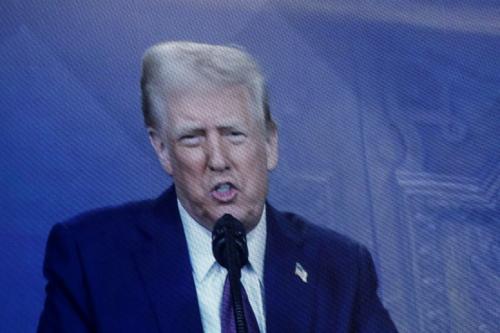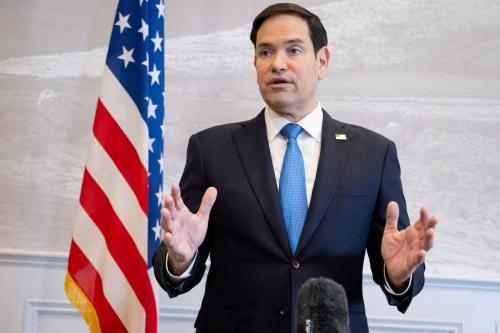Speaking at Brookings, Microsoft’s Brad Smith continued his company’s push for more regulation and transparency around data collection.
At an event moderated by Brookings Fellow Cam Kerry, Smith addressed a host of issues regarding the future of global technology, privacy, and regulation, and said “We need congress to close the door on unfettered bulk collection of data.”
Smith began his discussion by tracing the history of privacy rights to before America’s independence, explaining that such rights have been suspended on numerous occasions in historical times of crises in public safety.
However, he stressed that the right to privacy must be preserved. Citing an example of Microsoft’s protection of customer information following 9/11, Smith discussed the importance of not only upholding those rights enshrined in the US Constitution, but trust in technology as well:
The only basis on which It made sense for [Microsoft] to turn over the private communications of our customers to any government in the world including our own was pursuant to the rule of law and pursuant to legal process…if the US government felt that it had a need for the private communications of our customers, it should turn to the legal process, and if it felt that legal process didn’t go far enough, it shouldn’t ask us for help. It should turn to congress because that is the way that the fundamental rights of citizens should be protected and regulated in a democratic society.
Smith went on to explain that “people will use technology only if they trust it,” and that regulations must be set up that “protects public safety, preserves our fundamental freedoms, and promotes trust in this technology.”
He also discussed the emergence of a new definition of privacy amongst the younger generation of technology users who are willing to share personal information, as long as they can control who accesses it and how they use it.
Smith suggested that new social platforms and apps such as Snapchat that are designed for sharing ephemeral content emerged as a result of this evolution of the definition of privacy, a sort of “natural response to radical transparency to restore integrity and context to conversation.”
Anticipating a “world where every device is a connected device,” Smith posed four questions for the future of privacy and regulations going forward.
- How do we ensure transparency, that people have a right to know in an appropriate way what governments and companies are doing?
- How do we ensure that the public has appropriate control over personal information?
- How do we ensure accountability both to the law through reasonable regulation, and to the courts through effective judicial review?
- How do we ensure international norms and collaboration?
Smith concluded with the prediction that “over the long term, the world will expect and even insist that [technology companies] pay as much attention to the personal information of consumers as banks do to their money.” He suggested that:
If we want to talk about the world we want to create, I think it requires a combination of national laws and international agreement. And the best way to discourage protectionist forces is actually to have some international norms so that governments know when they have access to data in another country and under what terms, and it’s subject to a consensus that the publics in these countries are comfortable in.
The Brookings Institution is committed to quality, independence, and impact.
We are supported by a diverse array of funders. In line with our values and policies, each Brookings publication represents the sole views of its author(s).




Commentary
VIDEO: Microsoft’s Brad Smith Calls on Congress to Protect Citizen and Consumer Privacy
June 24, 2014